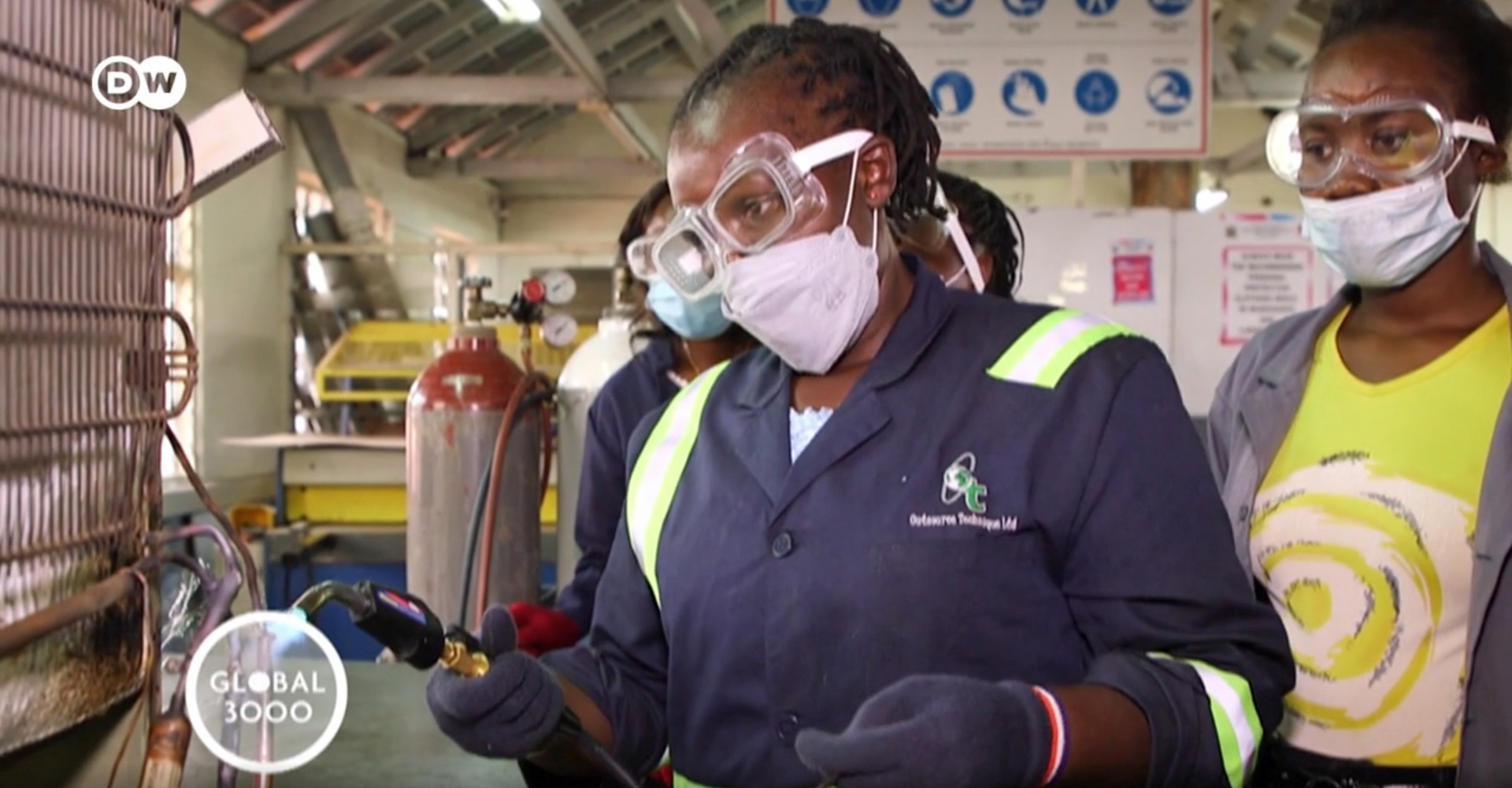Kenya Green Cooling
Makena Gachau from Kenya knows that the emissions from cooling and air conditioning are harmful to the ozone layer and fuel global warming.
“I am a mother and I want my children to have a good future,” she says. “But at the moment the conditions are far from good. The degradation of the ozone layer results in many negative consequences, causing for example cancer. That is why environmental protection is important.”
Makena Gachau works as a refrigeration and air-conditioning technician and can take direct influence: regular maintenance of cooling devices reduces power consumption and prevents leakage. The choice of cooling agents plays an important role. That is why she has taken special training to learn how to work with Green Cooling. The term describes a technology that uses natural refrigerants that do not harm the ozone layer or the climate or the environment. The “natural five” are water, air, carbon dioxide, ammonia and hydrocarbons (such as propane and isobutane).
The training that Makena Gachau attended was financed by the German government. Both the German Development Ministry (BMZ) and the Environment Ministry (BMUV) engage in activities on Green Cooling. Their work is closely aligned.
Through its Proklima project the BMZ has been promoting the Green Cooling approach in more than 40 partner countries since 1995. It has commissioned GIZ with the implementation of the project. Proklima offers partner countries policy advice, technology transfer and training for technicians and other actors in the cooling sector.
Upskilling as a contribution to gender equality, decent work and climate protection
One of the current Proklima partner countries is Kenya. The activities there are being financed through contributions made by Germany and France to the Multilateral Fund of the Montreal Protocol (agreement under international law from 1987 on the protection of the ozone layer). The local partner in Kenya is the national ozone unit at the Kenyan Ministry of Environment and Forestry.
In Kenya, too, the need for air conditioning units, refrigerators and industrial cooling systems is increasing. In order to control the import of potentially harmful cooling agents, the Kenyan Ministry is training customs officers with support from Proklima.
Vocational training institutes are provided with modern equipment to improve the training of experts for cooling technology. By August 2022, more than 1,000 Kenyan refrigeration and air-conditioning technicians had taken part in training courses on safety in handling natural refrigerants.
Makena Gachau is one of the few women who participated. Female refrigeration and air-conditioning technicians are occasionally confronted with discrimination, nevertheless Makena Gachau says with a smile: “I am happy to work in this male-dominated field, doing the same job – and doing it even better than the men.”
The BMZ wants to continue to support women like Makena Gachau and encourage more women to choose a career in the cooling sector. The training courses provided by Proklima are thus making a contribution also to climate protection, decent work and gender equality. And they are helping to develop effective cold chains for food, medicines and vaccines. Green Cooling is one of many important building blocks to achieve the goals of the global Agenda for Sustainable Development.
As at: 25/07/2023
